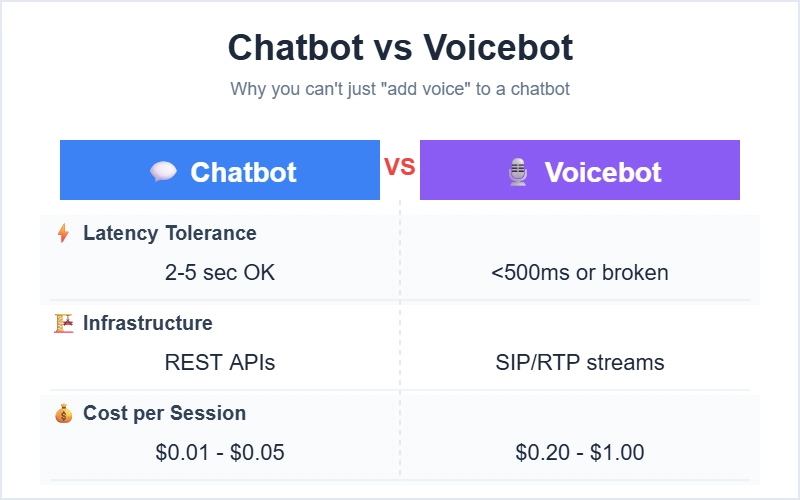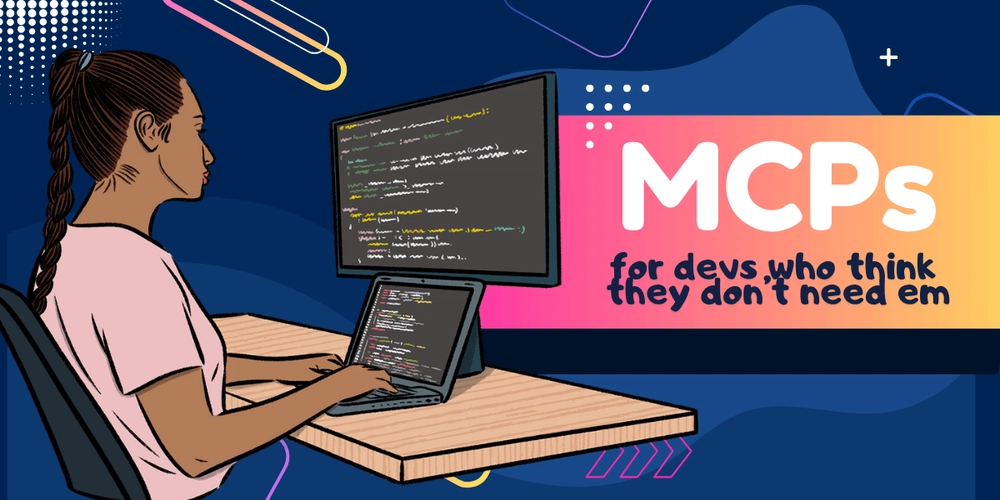You’ve built an amazing AI voicebot with GPT-4 and Whisper. It works perfectly in testing. Then you plug it into your production VoIP system and:
❌ 3-second delays between responses
❌ Calls drop at 50+ concurrent sessions
❌ Audio quality issues during AI processing
The voicebot isn’t broken. Your VoIP infrastructure is.
Why Legacy Systems Fail with Voicebots
Modern AI voicebots need:
- <200ms latency for natural conversations
- Real-time bidirectional streaming (not traditional IVR)
- Voicebot connectors to bridge VoIP ↔ AI APIs
- Scalable architecture for concurrent AI sessions
Your 10-year-old FreeSWITCH setup? Built for basic call routing, not real-time AI.
Chatbot ≠ Voicebot
What “Voicebot-Ready” VoIP Looks Like
Core components:
Caller → SIP Gateway → Voicebot Connector → AI APIs
↓
Audio Processing
Session Management
Fallback Logic
Modern stack:
- Kamailio for SIP routing (10K+ calls/sec)
- FreeSWITCH for media processing
- Custom connector (Node.js/Python microservice)
- Cloud AI (Azure Speech, OpenAI, Google)
- Redis for session state
Results:
✅ 2000+ concurrent voicebot sessions
✅ Sub-300ms end-to-end latency
✅ Horizontal scaling
✅ AI provider failover
Upgrade Signs
Time to modernize if you’re seeing:
- Planning AI voicebot integration
- Maxed at <500 concurrent calls
- No API support for integrations
- End-of-life software versions
Quick Migration Path
- Phase 1: Add voicebot connector (10% traffic test)
- Phase 2: Upgrade media layer
- Phase 3: New SIP routing (parallel run)
- Phase 4: Full migration
- Timeline: 3-6 months
If you’re building voicebots in 2025, your VoIP infrastructure isn’t just infrastructure—it’s part of your AI product experience.
Building AI voice solutions? What challenges have you faced? 👇




